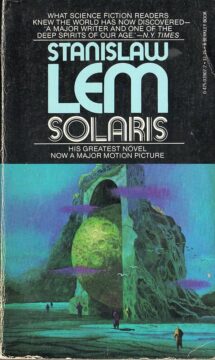Rivka Galchen at The New Yorker:
 In “Summa Technologiae,” Lem emphasizes how humanity, in thinking about the future, has often thought through the wrong questions. We can transmute other metals into gold now, but it was a misunderstanding that made us think we would still want to, he says. We can fly, but not by flapping our arms, since “even if we ourselves choose our end point, our way of getting there is chosen by Nature.” When Lem writes in “Summa” about artificial intelligence—or “intelligence amplifiers,” as he terms it—he says it’s likely possible that one day there will be an artificial intelligence ten thousand times smarter than us, but it won’t come from more advanced mathematics or algorithms. Instead, it comes from machines that can learn in a way similar to how we do—which is what is happening. With the Electronic Bard, Lem derides the worry that our own human creativity will be dwarfed. That, like the questions of the alchemists, he suggests, is the wrong concern. But what is the right one?
In “Summa Technologiae,” Lem emphasizes how humanity, in thinking about the future, has often thought through the wrong questions. We can transmute other metals into gold now, but it was a misunderstanding that made us think we would still want to, he says. We can fly, but not by flapping our arms, since “even if we ourselves choose our end point, our way of getting there is chosen by Nature.” When Lem writes in “Summa” about artificial intelligence—or “intelligence amplifiers,” as he terms it—he says it’s likely possible that one day there will be an artificial intelligence ten thousand times smarter than us, but it won’t come from more advanced mathematics or algorithms. Instead, it comes from machines that can learn in a way similar to how we do—which is what is happening. With the Electronic Bard, Lem derides the worry that our own human creativity will be dwarfed. That, like the questions of the alchemists, he suggests, is the wrong concern. But what is the right one?
more here.
